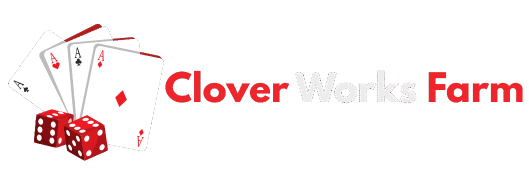Gambling can be a thrilling activity, whether it’s buying a lottery ticket, spinning slot machines, playing poker, or betting on sports. But when luck is on your side and you win big, there’s an important factor that comes into play — taxes. Different countries have varying rules when it comes to taxing gambling winnings. This blog will explore how taxes work on gambling winnings in three major regions: the United States, Canada, and the United Kingdom. By the end, you’ll have a clearer understanding of how each country handles gambling income and your responsibilities as a gambler.
Gambling Winnings and Taxes in the United States
In the United States, gambling winnings are considered taxable income by the Internal Revenue Service (IRS). It doesn’t matter if you win $10 or $10,000 — all winnings are technically subject to federal income tax.
What Counts as Gambling Winnings
Gambling winnings include money or the fair market value of prizes from lotteries, raffles, horse races, casinos, poker tournaments, sports betting, and even fantasy sports. Non-cash prizes like cars or trips are also taxable and must be reported at their fair market value.
Tax Reporting Requirements
If you win a significant amount, the payer (like a casino or lottery commission) may issue a Form W-2G, which reports your winnings to both you and the IRS. This typically applies to:
- $1,200 or more from slot machines or bingo
- $1,500 or more from keno
- $5,000 or more from a poker tournament
- Any winnings subject to federal income tax withholding
In general, if your winnings exceed these thresholds, you’ll receive a W-2G. But even if you don’t receive one, you’re still legally required to report your winnings on your tax return.
Withholding and Tax Rates
Some gambling winnings are subject to automatic federal withholding of 24%. For example, if you win $6,000 from a poker tournament, the casino may withhold 24% and send it directly to the IRS. You’ll get the remaining 76%, and a W-2G to document it. However, this withholding doesn’t mean your tax obligation is over. When you file your return, your total tax liability may be higher or lower, depending on your overall income and deductions.
Deducting Gambling Losses
The good news for U.S. gamblers is that gambling losses can be deducted — but only if you itemize deductions. Your losses can be claimed up to the amount of your winnings. For instance, if you won $10,000 in a year but lost $7,000, you can deduct $7,000, reducing your taxable winnings to $3,000. However, you must keep detailed records of all wins and losses, including receipts, tickets, and statements.
State Taxes on Gambling Winnings
Many U.S. states also tax gambling winnings, though the rules vary. States like California and Florida don’t tax gambling winnings, while others like New York and New Jersey do. If you win money while gambling in another state, you may owe taxes to both the state where you live and the state where you won. Always check your local state tax laws to be sure.
Gambling Winnings and Taxes in Canada
Canada takes a much more lenient approach when it comes to gambling income. In most cases, gambling winnings are not taxable to the individual. The Canadian tax system views gambling as a windfall — a lucky event rather than a source of consistent income.
When Gambling Winnings Are Tax-Free
For the average recreational gambler, any winnings from lotteries, casinos, sports betting, or poker games are not taxed in Canada. This includes jackpots from government-sponsored lotteries like Lotto Max or prizes from online casinos and land-based establishments.
Exceptions: When Gambling Winnings May Be Taxable
There are some rare cases where gambling winnings can be taxed in Canada, specifically when gambling is considered a business or part of a professional occupation. For example:
- A professional poker player who consistently earns income from poker and has a systematic method of play could be seen as running a business.
- A person who gambles full-time and depends on it for a living may fall under the “business income” category.
In such cases, the Canada Revenue Agency (CRA) might treat gambling winnings as taxable business income. However, this is not common and is typically evaluated on a case-by-case basis.
No Tax Deduction for Gambling Losses
Since gambling winnings are usually not taxed in Canada, it follows that gambling losses are also not deductible. Canadians cannot claim gambling losses to reduce their taxable income.
Gambling Winnings and Taxes in the United Kingdom
The United Kingdom is perhaps one of the most favorable countries for gamblers when it comes to taxes. In the UK, all gambling winnings are 100% tax-free, regardless of the amount.
HMRC’s Position on Gambling Winnings
Her Majesty’s Revenue and Customs (HMRC) does not view gambling as a source of taxable income. Whether you win from betting shops, online casinos, the lottery, or sports betting, your winnings are not taxed. This applies to both residents and non-residents who win while in the UK.
No Reporting Requirements
There’s no need to report gambling winnings on your tax return in the UK. Even if you win a massive jackpot, the government does not require you to disclose or declare the winnings.
Professional Gamblers in the UK
Interestingly, even professional gamblers in the UK are not subject to tax on their gambling profits. HMRC takes the position that gambling is not a trade or profession, no matter how skilled the gambler is. This means that even full-time poker players or sports bettors do not have to pay tax on their profits.
Bookmakers Pay the Taxes
In the UK, taxes related to gambling are paid by the operators, not the players. Gambling companies must pay duties such as Remote Gaming Duty or Betting Duty. These are factored into the odds and payout rates that gamblers receive, meaning the cost is indirectly passed to the customer — but players themselves don’t deal with the tax authority.
Comparing the Three Countries: Key Differences
The differences in gambling tax policies between the U.S., Canada, and the UK highlight the varying philosophies these governments have about gambling.
In the United States, gambling winnings are treated like any other form of income. Both federal and state governments can tax your winnings, and you must report them, regardless of the amount. You may also deduct losses, but only if you itemize.
In Canada, most winnings are tax-free unless you are gambling professionally. Casual gamblers get to keep all of their winnings, but they also cannot deduct losses on their taxes.
In the United Kingdom, the rules are the most straightforward. All gambling winnings are completely tax-free, with no reporting requirements. The responsibility for taxes falls on the gaming operators, not the players.
Cross-Border Gambling: Tax Implications
For travelers who gamble in other countries, it’s important to be aware of potential cross-border tax issues. For instance, a Canadian who wins money in the U.S. will be subject to U.S. tax withholding. They may be able to file a U.S. tax return and recover some or all of the withheld amount, depending on tax treaties between the two countries.
Similarly, a UK resident who wins in Las Vegas will be taxed under U.S. laws, even though gambling winnings are tax-free at home. However, depending on the country’s tax treaty with the U.S., they may avoid double taxation or apply for a refund.
Tips for Managing Gambling Taxes
- Keep Accurate Records – Whether you’re in the U.S. or potentially gambling as a business in Canada, maintaining records of your wins and losses is vital. This includes tickets, receipts, statements, and logs.
- Understand Your Country’s Rules – Ignorance of tax law won’t protect you. Know your responsibilities and seek professional advice if needed.
- Claim Tax Treaties – If you’re gambling internationally, check whether a tax treaty applies between your home country and the one where you’re playing. This could reduce or eliminate withholding taxes.
- Use Tax Software or a CPA – If you win large amounts, especially in the U.S., consider using professional tax software or consulting a certified public accountant (CPA) with experience in gambling taxation.
- Don’t Forget About State Taxes – In the U.S., remember that your state may also want a cut of your winnings, especially if you live in a high-tax state.
Final Thoughts
Gambling can result in thrilling wins and life-changing jackpots — but understanding how those winnings are taxed is essential to avoid unpleasant surprises. While the U.S. enforces strict tax rules on gambling winnings, both Canada and the UK offer far more lenient or tax-free environments. Knowing how each country handles these rules will help you keep more of your winnings and stay compliant with the law. Whether you’re spinning the reels in Vegas, buying a lottery ticket in Toronto, or placing a bet in London, the tax implications are just as important as the game itself.
Would you like a downloadable PDF version of this blog for your site or audience?


